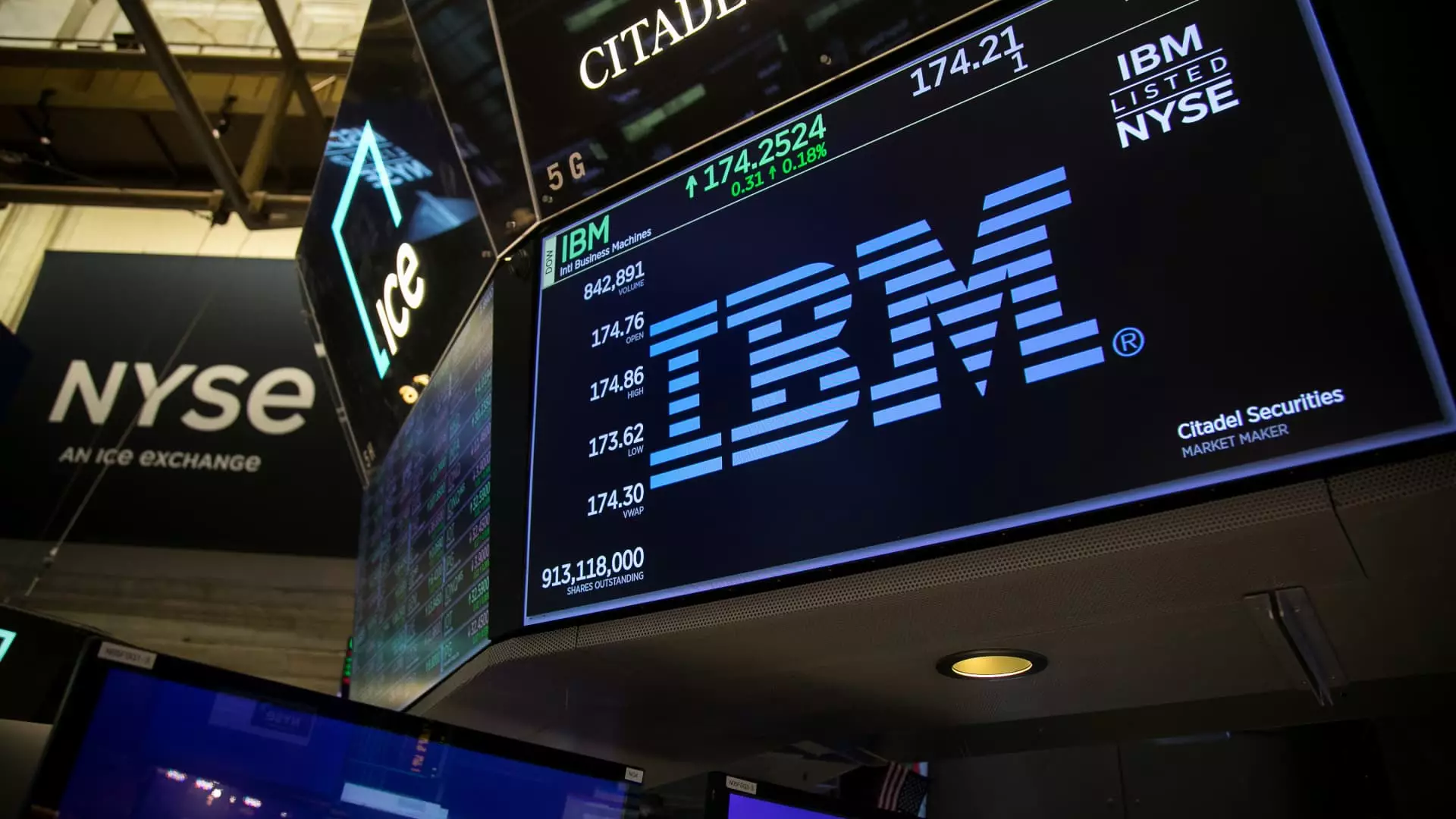Evaluating Market Dynamics: A Deep Dive into IBM, Uber, and Mattel

The stock market remains a vast and intricate ecosystem, where each movement of a stock can signify broader trends and emerging technologies. Recently, the spotlight has been cast on three companies that not only represent contrasting sectors but also unique strategic approaches to market challenges. IBM, Uber, and Mattel have all taken different routes in navigating their recent earnings reports and market performance. This article evaluates these companies, focusing on their recent developments, challenges, and what investors should consider moving forward.
IBM has garnered attention for being the top performer in the Dow Jones Industrial Average, with a remarkable 27% surge over the past three months. This impressive boost might lead many to believe that the tech giant has solidified its position in the competitive landscape of artificial intelligence (AI). However, Scott Nations, president and chief investment officer of Nations Indexes, asserts a pragmatic stance on IBM’s future in AI. While the company’s fourth-quarter earnings exceeded Wall Street expectations, showcasing a 10% growth in software revenue largely powered by AI demand, skepticism looms.
Nations emphasizes that IBM’s trajectory in AI diverges from industry giants like Google and Microsoft. By adopting a “DeepSeek” approach, the company seems to be taking a more calculated route, which raises concerns about the effectiveness of its strategy compared to peers that have rapidly embraced AI development and deployment. The introduction of China’s DeepSeek further complicates the landscape by underlining how affordable AI development can be, sparking debates regarding market sustainability and innovation benchmarks in a rapidly evolving sector.
Nations recommends a cautious wait-and-see approach for investors. Despite IBM hitting all-time stock highs, the overarching sentiment suggests that clarity on its AI strategy is essential before making substantial investment commitments.
Uber’s Bold Moves in an Evolving Market
Turning to the ride-hailing sector, Uber is navigating through its own set of turbulence. After a disappointing earnings report that led to a near-term slump in stock prices, the financial analysts’ outlook remains mixed, with Nations advising opportunistic investments by buying the dip. Uber’s dual focus on accelerating stock repurchases and gearing up for the imminent public launch of robotaxi services in Austin highlights its ambition to capture a burgeoning multi-billion dollar autonomous vehicle market.
CEO Dara Khosrowshahi’s acknowledgment of the lengthy timeline required for establishing a foothold in the robotics sector reiterates the importance of balancing investor expectations with reality. The potential for autonomous vehicles is enormous, yet the question remains as to how soon this will translate into substantial returns for shareholders. Uber’s strategy reflects a willingness to innovate for long-term growth while simultaneously addressing short-term financial performance—the tightrope many companies must walk in today’s competitive business landscape.
Conversely, Mattel’s recent earnings reveal a different narrative, one rooted firmly in increased demand and corporate restructuring. The toy company’s shares have climbed following a surprising revenue performance and profit that outstripped analyst predictions. Nations expresses optimism about Mattel’s stock, particularly if it dips below the $20 mark, drawing attention to the positive implications of its stock buyback strategy, which could stimulate further market interest.
Investors are often swayed by buybacks, as they signal confidence from management and can enhance shareholder value. Mattel’s commitment to repurchasing $600 million in stocks over two years indicates a proactive approach to managing its equity and can invigorate investor sentiment in the volatile toy market.
The narratives surrounding IBM, Uber, and Mattel encapsulate the complexities and unpredictabilities of the stock market today. Each company, while operating within its own sector, faces distinct challenges and opportunities that reveal broader market trends. For investors, the nuances of stock evaluation in today’s environment call for thorough research and an understanding that strong past performance does not always correlate with future success. As the market continues to evolve, staying informed about each company’s strategies and market context will be imperative for making sound investment decisions.





